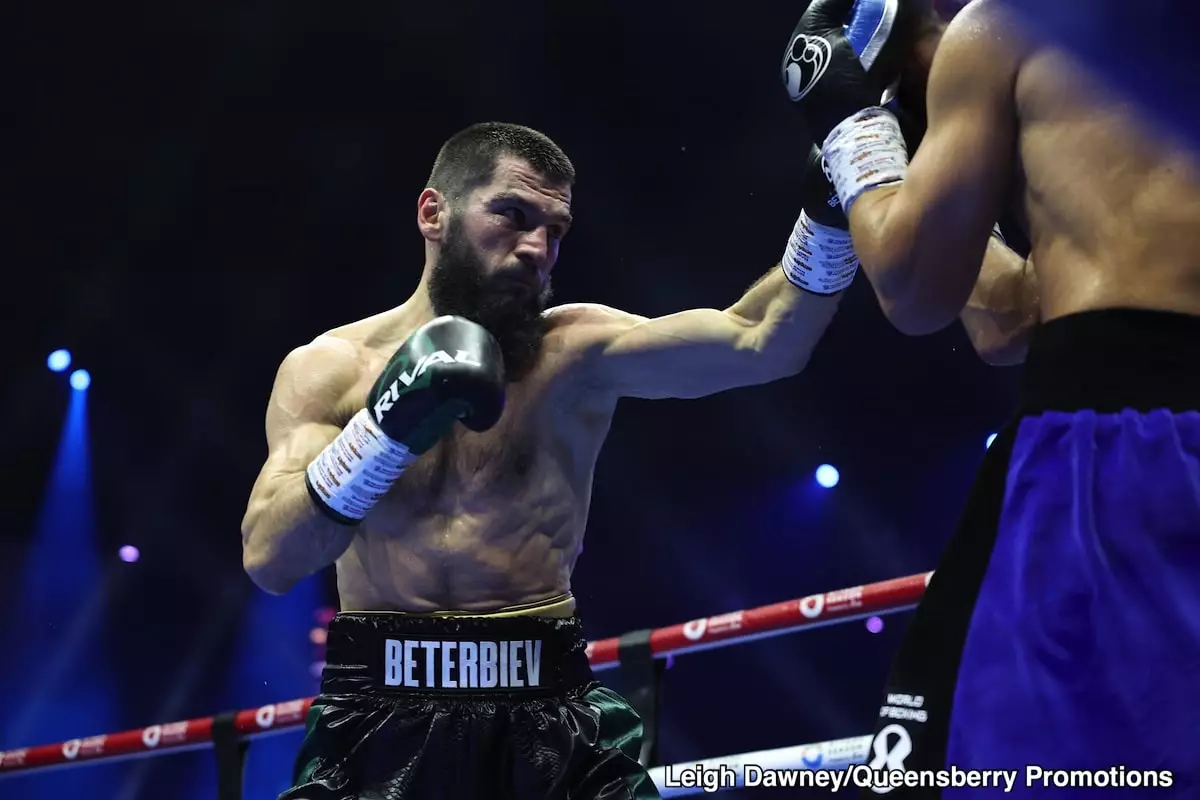The world of boxing is often fraught with complexities regarding title defenses, especially when a champion holds multiple belts. Such is the case for Artur Beterbiev, the undisputed light heavyweight champion whose recent victory over Dmitry Bivol has put him in the hot seat regarding his next bout. Bob Arum, the venerable promoter associated with Beterbiev, has expressed his frustration over the International Boxing Federation (IBF)’s decision to mandate a defense against Michael Eifert, a fighter relatively obscure in the boxing landscape. This situation raises questions about what it means to be an undisputed champion in contemporary boxing, highlighting the tension between regulations and the competitive spirit.
Arum’s outrage stems from what he perceives as an absurdity: compelling a champion—who just achieved a significant win—to defend against a “non-entity” like Eifert. In the world of sports, especially boxing, performance on the big stage is pivotal in shaping a fighter’s legacy and marketability. Beterbiev’s recent success was a culmination of hard work, making the prospect of facing Eifert appear trivial, if not insulting. Arum’s comments illustrate a broader issue within governing bodies—rules that seem detached from the realities of promoting high-stakes fights that garner public interest and excitement.
The debate becomes even more pronounced when considering the future bout landscape for Beterbiev. There are significant names like Canelo Alvarez and David Benavidez looming on the horizon. These fights present not only a chance for Beterbiev to solidify his status further but also the opportunity to engage a more significant fanbase. Indeed, the allure of a rematch with Bivol is diminished by the lackluster style displayed in their previous encounter; it was not a contest that excited fans or sparked the passionate discussions typically associated with boxing rivalries. The contrasting styles of Canelo and Benavidez, both of whom provide high-action potential, are what Arum believes will resonate more with fans and marketers alike.
As the IBF mandates this title defense, doubts linger over its impact on Beterbiev’s trajectory. Will he comply with the IBF’s stipulations, or will he choose to vacate the title in pursuit of more rewarding challenges? There’s a question of integrity versus opportunity, where one must wonder if holding onto a belt becomes a burden instead of a badge of honor. Furthermore, Turki Alalshikh’s involvement hints at possible aspirations for a blockbuster rematch or a more significant matchup, leaving fans and analysts alike speculating about the balance between regulation-imposed obligations and the champions’ autonomy in choosing their paths.
Ultimately, this debacle highlights a critical junction in the boxing world: the need for reevaluation of regulatory frameworks. As fighters strive to create legacies, it becomes increasingly vital to consider the demands that are placed upon them in the name of compliance. As Arum passionately suggests, if the rules limit the sport’s potential for thrilling matchups and meaningful competition, perhaps it’s time to rethink those very rules that govern the sport. Fans deserve better than to watch champions trapped in a cycle of mandatory defenses against lesser-known opponents when their legacy could be etched by fighting the best in the business.

